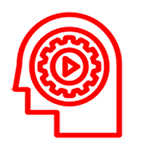99+ Psychology Facts About Human Behaviour
Introduction:
99+ Psychology Facts About Human Behaviour. In the charming global of psychology, expertise of human conduct is like unraveling a complicated tapestry product of threads of mind, feelings, and actions. This article dives deep into “99+ Psychological Facts About Human Behavior,” presenting a wealth of insight that sheds mild on why we do the things we do. By discussing in detail all the matters in an effort to make it more powerful and smooth.
Understanding Human Behaviour
99+ Psychology Facts About Human Behaviour. Human behaviour is prompted by numerous factors, which include genetics, environment, subculture, and private studies. By exploring “99 + Psychology Facts About Human Behaviour,” we can gain a deeper knowledge of the motivations behind our moves and how we interact with the surrounding sector.
The Power of First Impressions
First Impressions Are Formed Within Seconds: Studies display that it takes as low as a tenth of a 2nd to shape an impression of a stranger, highlighting the effective impact of preliminary encounters.
The Influence of Emotions on Decision-Making
Emotions Significantly Influence Our Decisions:
Emotional responses can override rational concept, main to selections which can be more prompted by how we experience in preference to logical analysis.
Psychological Phenomena That Shape Our Lives
Several mental phenomena play important roles in shaping our conduct and interactions with others.
The Bystander Effect
The More People Present, the Less Likely Someone Will Help: Known as the bystander effect, this phenomenon explains why people are much less in all likelihood to offer assist in emergencies while there are extra humans round.
Cognitive Biases
Confirmation Bias Skews Our Perception:
We will be inclined to prefer facts that confirm our preexisting beliefs or values, that could result in skewed perceptions of reality.
The Role of Social Influence
Social factors considerably affect our behavior, from the manner we agree to societal norms to how we respond to authority
Peer Pressure
Peer Influence Is Strongest in Teenage Years: Adolescents are specifically prone to peer pressure, that can form their behaviors and choices appreciably.
Exploring the Mysteries of the Mind
Delving into “99 Psychology Facts About Human Behaviour” additionally approach exploring the mysteries of the human thoughts, along with memory, notion, and the subconscious.
The Power of the Unconscious
Much of Our Behaviour Is Influenced by the Unconscious Mind: A big part of our conduct is driven by way of subconscious procedures, together with desires and fears we are not aware of.
FAQs For 99+ Psychology Facts About Human Behaviour
Q1: Can understanding psychology records about human behaviour enhance relationships?
Absolutely! Understanding the mental underpinnings of human behavior can beautify empathy, verbal exchange, and connection in relationships.
Q2: How do feelings have an effect on our selection-making process?
Emotions can play a dominant role in decision-making, often overshadowing rational idea and leading to selections based on feelings in preference to logical reasoning.
Q3: What is the bystander impact?
The bystander impact is a social psychological phenomenon in which individuals are much less probable to offer assist to a victim when different human beings are present, frequently due to a variety of duty.
Q4: How does peer strain affect behavior?
Peer strain can drastically influence an man or woman’s conduct, especially in the course of youth, encouraging conformity to organization norms and values
Conclusion
99+ Psychology Facts About Human Behaviour. Embarking on a journey through “ninety-nine Psychology Facts About Human Behaviour” unveils the tricky and spell binding panorama of human psychology. These insights now not only provide a window into the motives and forces that force our movements, however additionally provide valuable knowledge that can be carried out in our daily lives to foster higher information and relationships with others. By continuing to discover and understand the depths of human conduct, we equip ourselves with the tools to navigate the complexities of human interactions and the surrounding sector.

